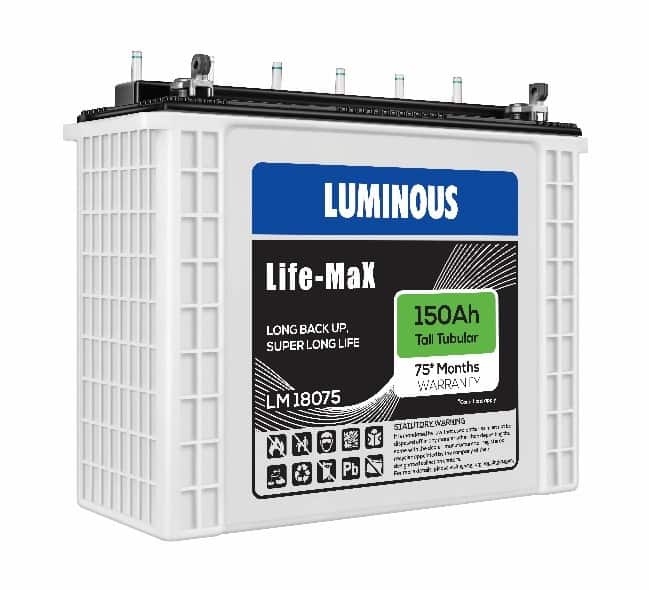We cannot imagine our lives without the latest gadgets and appliances. From power generation to storing power, technology has come a long way. When there is a blackout, life comes to a halt. Such situations can adversely impact your daily routine, and this can create problems for you. To effectively avoid such situations, you must have the best battery for inverter. A battery is an essential part of an inverter, and there is a high dependency on these batteries as the life and functioning of an inverter depend on it. Many brands provide an array of batteries for inverters. However, you can purchase the best battery for inverter from reputable brands like Luminous as they offer the best battery systems in India. There are some myths associated with the battery for inverter. Things we usually hear but not sure if they are true.
Here we will try to bust some popular myths that are associated with battery for inverters:
- Fully Charge the Batteries Before Using it
It is a myth that you should completely charge your batteries before using them for the first time. Though you can charge for a better efficiency and utilisation, but it’s not a compulsion. Generally from the factories batteries are supplied with more than 90% charge. Batteries can be used immediately after purchase.
- Batteries Don’t Lose Charge When Not Used
The battery will lose its charge even if you don’t use it and leave it unused. Batteries contain chemically active components. When not in use, then also internal chemical reactions happen – however in a very slow pace. Because of slow chemical reaction inside, batteries loose charge. For a long storage, it is always advised to fully charge the battery and then store the battery in a cool and dry place. In this way, this problem can be minimized.
- Disposable Alkaline Batteries have More Capacity
There is a myth, which states that disposable alkaline batteries have more capacity when compared to rechargeable batteries. The capacity of a battery depends upon various factors like the magnitude of the current, allowable terminal voltage, and temperature. Electronic devices like cameras, laptops get more power and work for a long time with rechargeable batteries than alkaline batteries.
- Storing Batteries in Refrigerator Extends its Life
When it comes to extending the lifespan of batteries, most of us think that storing batteries in a refrigerator can extend its life. It is not true. Keeping the batteries in a fridge can be slightly risky because of the chemicals it has. If you reside in a warm area, then it helps you somewhere; otherwise, it would not make a big difference. For long storage, it is advised to fully charge the battery and then store it in a cool and dry place.
- Discharge the Battery Completely Before Recharge
Many people believe in the misconception that they should fully discharge the battery before recharging it. People also believe that this process would extend the shelf-life of the accumulators. It is not at all true. On the contrary, it can harm the battery. It does not increase the life of the battery.
- Outside Temperature Does Not Impact Battery Life
Whether the temperature is warm or cold outside, it can make your battery perform slower, and reduce its life substantially. As a result, your battery will give you less back up even after you keep charging it. Temperature, high altitude, and even humidity can impact your battery adversely.
Debunk the Myths about Battery for Inverter
There are many myths surrounding battery for inverters. Reputable companies like Luminous are doing their bit by educating people about all the necessary knowledge on batteries and inverters that one needs to have.
So, stop believing in these myths, and purchase the best battery for inverter!
